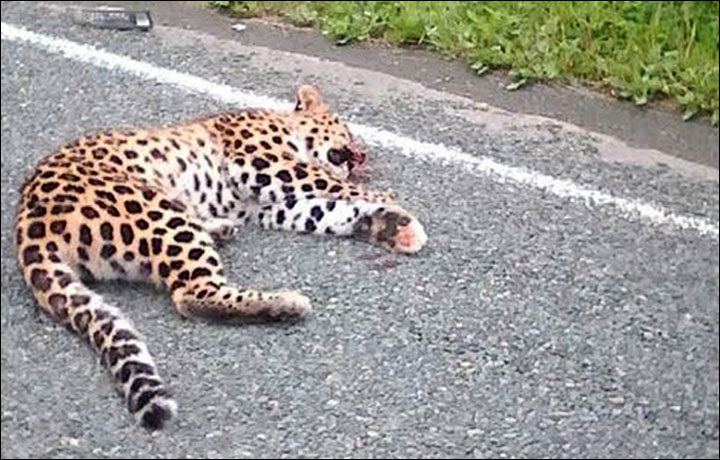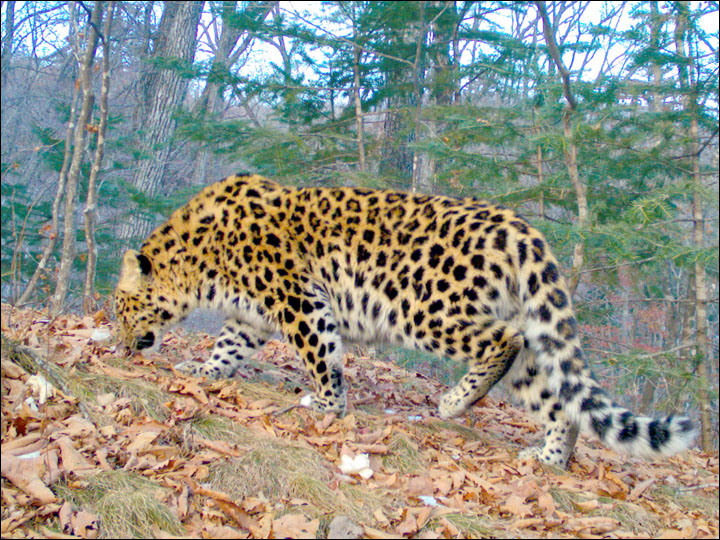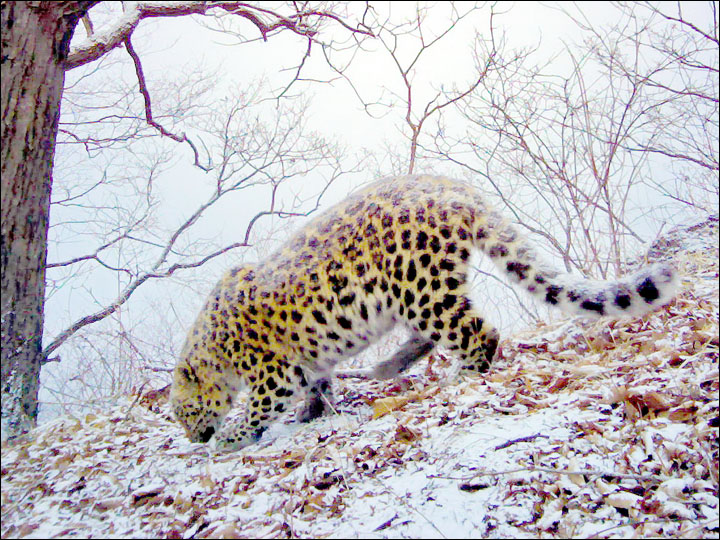27 July 2016
Fears for three year old 'secretive' Amur leopardess named after Olympic giant Jean-Claude Killy.

'We have stopped active phase of search for wounded leopardess'. Picture: Land of the Leopard National Park
The rare cat, one of only a few dozen living in the wild, was struck
this week by a car in Primorsky region, near Kravtsovka village. The
female lay on the road long enough for pictures to be taken by passing
motorists. Then she fled into the forest but there are concerns that the
big cat is wounded.She was recognised as 'Killy' from pictures taken at the site before leaving the scene of the accident.
Searches of surrounding territory failed to locate the leopardess, but now there is a watch for her on photo-traps in an attempt to assess her condition after the collision.
Ivan Rakov, spokesman for the national park, said: 'We have stopped active phase of search for wounded Killy, we're now in the passive stage. It means that experts will be carefully checking pictures taken by photo-traps and cameras to identify Killy among them, and to understand what's happening to her.
'Clearly it won't be easy because this three year old leopard is known for her secretive behaviour.'


Killy the leopard is one of 80 most endangered big cats. Pictures: Land of the Leopard National Park
Staff at the Land of the Leopards National Park identified her from the pattern of her spots.
He was named after the former French World Cup alpine ski racer, and triple Olympic champion. From 1995 to 2014 he was a member of the International Olympic Committee and chaired the coordination committee Sochi 2014.
The Amur leopard is officially recognised as 'critically endangered' yet the numbers in the wild have risen from as low as 30 in 2007 to around 80 now. This came after a 'baby boom' among the leopards in the national park set up to protect them from poaching which had driven them to the brink of extinction as a wild animal.
source
No comments:
Post a Comment